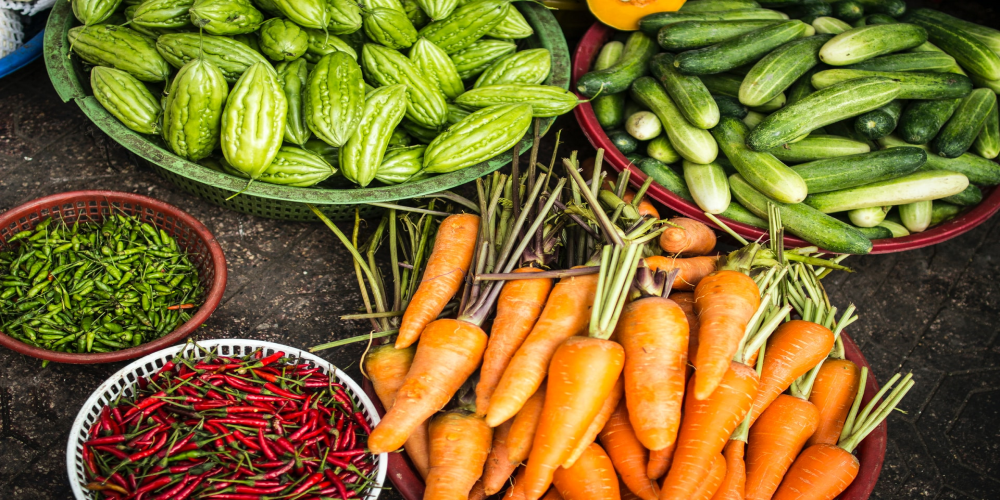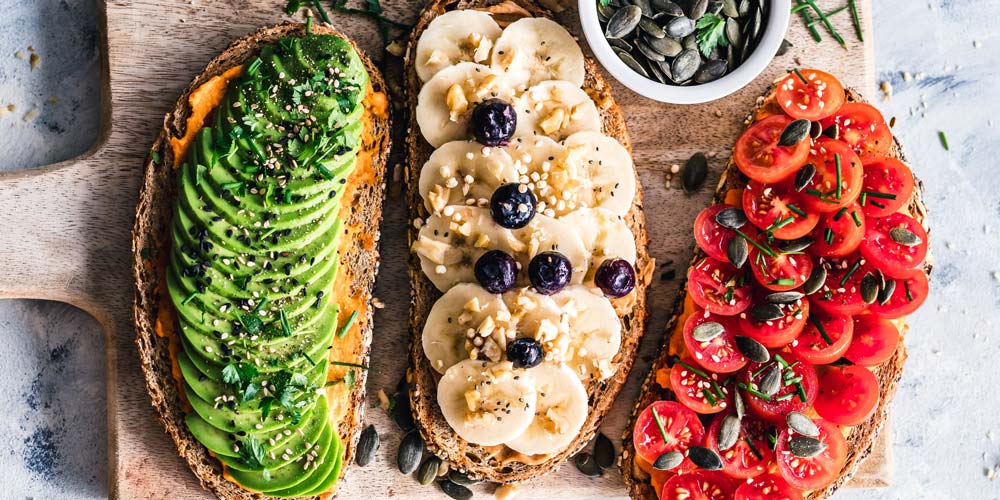Meat-Free Diets: The Different Types & Why You Should Give Them a Try
Voices calling for meat-free diets like a vegetarian, vegan or plant-based diet in the name of sustainability are becoming more and louder.
There are also many new innovations, for example the production of “meat-free” meat. One of the best known of these is Beyond Meat – this brand that makes vegan products is revolutionizing sustainable food production.
Also many celebrities have spoken out about the issue. One example is Leonardo DiCaprio who has long been an advocate for various environmental issues.
But what is the driving force behind all these developments and how to get started with a more environmentally friendly, meat-free diet?
A Global Step Forward in Food Awareness
Humanity is planning to implement a settlement on Mars by 2024, but what will happen to our planet? What kind of footprints do we and our choices leave behind and how can we live a lighter, more sustainable life on an increasingly drained planet? The good news is: Just changing your eating habits can already have a huge positive impact on your ecological footprint – and on your health.
An increasing number of scientists and activists advocate for everyone switching to a meat-free diet in the interest of global sustainability..
In his famous movie One Life on the Planet David Attenborough also commented:
“We need to change our diet. Our planet is incapable of feeding billions of carnivores. ”
During his lifetime, Attenborough traveled to various remote places on the planet and saw the extent of the devastation that had taken place in just one lifetime. But maybe it is not yet too late to save the future of our planet.
The first step is to be the change we want to see in the world and to change our own lives in ways that will bring a more sustainable future.
Meat-Free Diets for Sustainability
When homo sapiens were still living as hunter-gatherers, there were barely a few hundred thousand humans on the planet. Their ecological impact was small. Their consumption of resources was negligible. In the 21st century, however, the number of homo sapiens is slowly reaching 8 billion.
All of these hungry mouths need to be fed with the resources of an increasingly exhausted planet. The demand for meat is rising and the necessary agricultural land is becoming bigger and bigger.
If this development continues, by 2050 we might not be able to feed the whole of earth’s population.
Unfortunately we tend to not think about the future and just enjoy the moment. But what if we looked at how our long-term lifestyle will affect our planet? Changes need to happen to secure our future.
Newest research also shows to which extent the space and the amount of food farmed animals need are causing the extinction of a massive number of species. Currently 28,000 species are under threat from livestock farming. Earth’s biodiversity is also under great threat from a meat-consuming lifestyle.
Research in more and more areas, be it in the field of sustainability or even our own health and longevity, is prompting us to consider a vegan diet.
Meat-free for Your Health
Research increasingly establishes a connection between meat consumption, especially that of red meat and processed meat like salami or hot dogs, and heart disease as well as a higher risk of death. Red meat also just recently has been classified as a Group 2 carcinogen, meaning it possibly causes cancer and processed meat even as Group 1 carcinogen – meaning it is known to cause cancer.
Another point to consider are the antibiotics and hormones with which the animals are fed, which can lead to antibiotic resistance. Together with the large amount of antibiotics in medical use for humans this increasing resistance could lead to 10 million deaths per year by 2050.
Humans and Milk
Already fifteen percent of the European population does not consume dairy products for health and ethical reasons and more and more plant-based milks are used to replace dairy products.
Homo sapiens originally could not digest the milk. After infancy, the “ability” to break down milk disappeared, but through a genetic mutation, the human body adapted and some people became able to produce an enzyme that can break down lactose.
Generally about 65% of the world population are lactose intolerant, with some areas in Asia, Africa and South America more than 90% of the adult population are lactose intolerant. Milk is not a food that a large part of the world population is adapted to ingest, so it stands to reason that even for the ones who have adapted to it, it is not the healthiest option.

Three Types of Meat-free Diets
There are several different meat-free diets and followers of each adhere to a different set of rules each. While they might all seem the same at the first glance, there are significant differences.
The Vegetarian Diet
Following a vegetarian diet means that we can eat anything that has no meat in it. Vegetarians still eat eggs and milk products like cheese and yogurt.
A Whole-Food Plant-based Diet
Followers of a whole-food plant-based diet avoid consuming all processed foods, processed carbohydrates like white flour, white rice and refined sugar and of course they don’t eat any animal products. Instead, they choose healthy, plant-based foods like whole grains, all kinds of vegetables and fruits, legumes, nuts, seeds, and more. The possibilities are plentiful and they can be adjusted to one’s liking to design the ideal meal.
The Vegan Diet
Veganism is not just a diet, it is a philosophy that refuses to use any products for the production of which animals are harmed. Vegans don’t consume any animal products, be it milk, eggs, diary or even honey. They don’t use leather products and also pay attention to things like cruelty-free cosmetic products (no animal testing for the development of the product.
Vegans can follow a whole-food plant based diet, but there are also plenty of “junk-food vegans”, enjoying sugary, vegan donuts, chips, sweets and more.

How to Get Started
You can find many guides on this topic if you want to dive into it. But if you designate just one day a week, where you eat only meat- and dairy-free meals, then that is already a big step for our planet. It may require some advance planning, but once you’ve got the hang of it, it will be really easy!
- Start small. If you designate just one day a week, where you eat only meat- and dairy-free meals, then that is already a big step for our planet.
- Plan your meals ahead and adjust your grocery list
- Start thinking about which meals you like that are vegetarian or vegan by nature and make a list. The next step is thinking about how to recreate your favorite meals that do contain meat, eggs or dairy products. There are a million recipes online and you can turn almost everything into a vegetarian, vegan or whole-food plant-based delicacy.
- Once you are ready to take the leap, clean out your pantry and your fridge and give away all the food that doesn’t fit into your new diet anymore. Instead fill up with vegetables, fruits, legumes and so on.
- Convince your friends, not by preaching to them, but by inviting them for delicious meat-free meals to show them how amazing and varied a meat-free diet can be.
Determination with Imperfection Is the Key
It is important to know that to have an impact and for a more sustainable lifestyle, you don’t have to be perfect in your choices.
The desire to change is important and to implement this change after the best of your abilities. If we just pay a little bit of attention to your nutrition and also to produce less garbage and use less plastic, to where we buy products and how we consume, we are already developing a more conscious lifestyle. Conscious eating is a cornerstone of a conscious lifestyle.
Many small changes implemented by many people are the key to a greater change.
And even though meat consumption has been an integral part of the Western human diet for a long time, perhaps the time has come to question this. It is easy to get started, just choose one of the many available options and go step by step!
Don’t forget to follow us on Facebook, if you want to read more news about the best yoga studios in Budapest, yoga & healthy lifestyle events in Budapest and a conscious lifestyle!
 English
English magyar
magyar